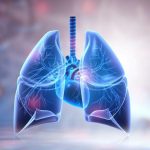
Pollutants produced by the U.S. oil and gas industry cause thousands of deaths and cost the country tens of billions in health care expenses, a new study reports. Nitrogen dioxide (NO2), fine particulate matter and ozone all contribute to air pollution, and all are emitted as part of oil and gas production, the researchers said. The new study estimates that the oil and gas industry contributed to 7,500 excess deaths, 410,000 asthma attacks and 2,200 new cases of childhood asthma across the United States in 2016. All told, oil and gas production cost the United States $77 billion annually in health care damages, when factoring in related heart and lung hospitalizations, adverse pregnancy outcomes and other illnesses. That total cost is three times the estimated climate impact costs of methane emissions from oil and gas operations. “These substantial impacts from oil and gas production show that there are serious consequences across the full life cycle of oil and gas, from ‘well to wheels,’ ‘well to power plant’ and ‘well to furnace,’” said co-researcher Jonathan Buonocore, an assistant professor of environmental health at the Boston University School of Public Health. “The health impacts are not just from the combustion of oil and gas,” Buonocore added in a university news release. “In order for energy, air quality and decarbonization policies to successfully protect health, they need to… read on > read on >


















